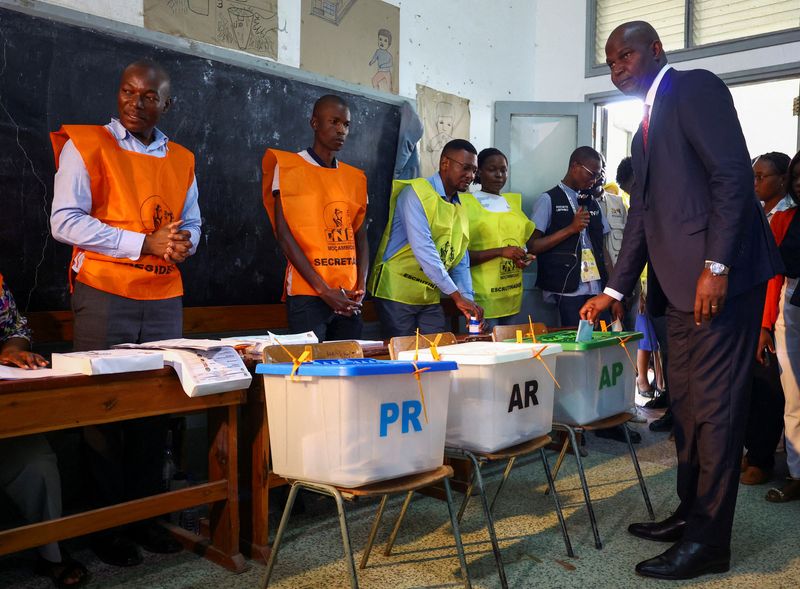By Manuel Mucari and Nellie Peyton
MAPUTO (Reuters) -Mozambique's ruling party Frelimo has retained power in this month's national election, extending its five-decade rule in the Southern African state as the opposition accused it of fraud.
Frelimo's Daniel Chapo, 47, will succeed President Filipe Nyusi to become Mozambique's fifth president since its independence from Portugal in 1975. Nyusi is stepping down after serving the maximum two terms.
Chapo won over 70% of votes, the electoral commission said on Thursday. Venancio Mondlane, backed by the Podemos party, came second with 20% of votes, displacing former rebel movement Renamo, which had been the official opposition party but whose candidate came third this time around.
In the parliament, Frelimo increased its number of seats to 195 out of 250, more than the 184 it had before.
Observers have said the Oct. 9 election was not free and fair. A European Union mission reported irregularities during counting and alteration of results at the local and district level, problems which have marred most polls since Frelimo first allowed multi-party elections in 1994.
The electoral commission has declined to comment on allegations of vote-rigging. A Frelimo spokesperson did not reply to requests for comment.
Shortly after Chapo was declared winner, Mozambique's sole dollar bond, maturing in 2031, fell for a fourth day, TradeWeb data showed as investors assessed the risk of unrest.
Mondlane, who holds sway over many of the country's young voters and claims he is the true election winner, has already called for nationwide protests on Thursday and Friday. Groups of protesters started to gather in the capital Maputo after the result was announced.
Police on Monday used teargas and gunfire to disperse opposition supporters protesting the murder of a Podemos lawyer and party official two days earlier, raising tensions.

Chapo, a lawyer, is seen as a business-friendly choice who analysts say is likely to maintain the status quo, including a fight against Islamist insurgents in the north and partnerships with companies like Exxon Mobil (NYSE:XOM) and TotalEnergies (EPA:TTEF), which are trying to get major gas projects off the ground.
The country of nearly 35 million people is struggling with a large debt burden and worsening climate shocks, including drought and cyclones.